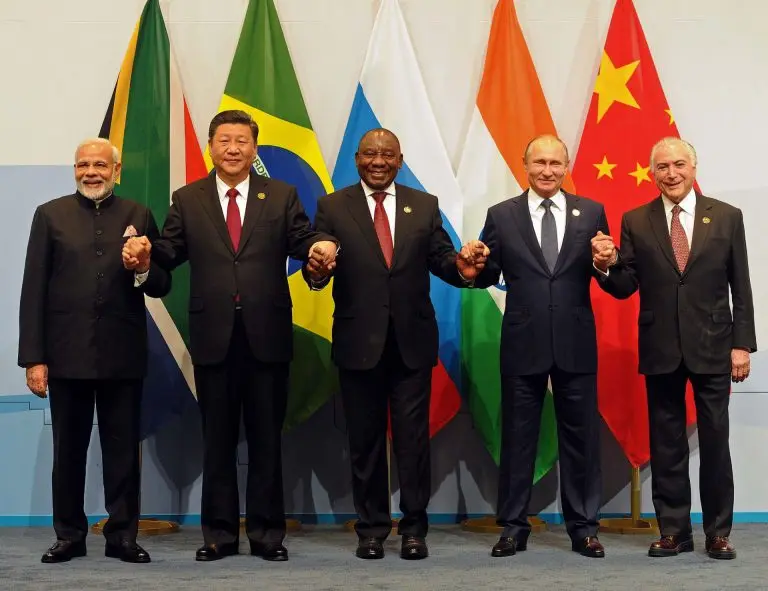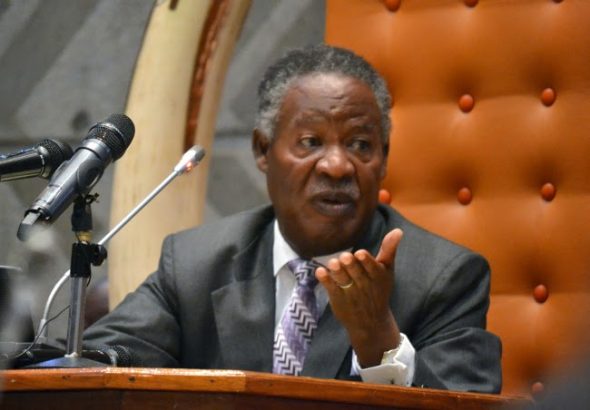
Apart from BRICS countries, now ASEAN nations will move away from the U.S. dollar. It is reported that the Gulf Cooperation Council (GCC) is also planning to move in the same direction.
Lusaka, May 18 – The aggressive stance of BRICS to promote an alternative currency has impressed other developing Eastern nations.
The move is strengthening partnerships in Asia as 24 countries have shown interest to join the alliance and accept the new currency.
The BRICS bloc could reshape the geopolitical landscape and tilt the power from the West to the East. If it expands to BRICS+, the Western powers could face a new challenge as their GDPs would be bigger than European nations. Therefore, the U.S. dollar, Euro, and the Pound are now on the verge of losing their supreme status.
South Africa’s Foreign Affairs Minister Naledi Pandor highlighted that many countries are impressed with BRICS’ moves. She stressed that the need for a multipolar world is growing and a different global agenda could soon take shape. She stated that the alliance will play a transformative role in creating a new world order by sidelining the U.S. dollar.
“BRICS is attracting a lot of interest from a number of countries. Our Sherpas are working on the concept of how the group can respond to this interest. We hope that our leaders will present final guidelines at the conclusion of the BRICS Summit,” she said.
And the leaders of 10 Southeast nations and the members of the Association of Southeast Asian Nations (ASEAN) have agreed to promote their native currencies for cross-border transactions.
Also Read: This is a wrong time to align Zambia with the US with a changing geopolitical landscape.
The 10 countries will reduce settling payments with the U.S. dollar and use their local currencies for transactions. The group of nations wants to “encourage the use of local currencies for economic and financial transactions.”
The 10 nations that have decided to ditch the U.S. Dollar are Brunei, Cambodia, Indonesia, Laos, Malaysia, Myanmar, Philippines, Singapore, Thailand, and Vietnam.
The move will help these countries to end their dependency on the U.S. dollar and significantly boost their native currencies.
The declaration accepted by the ASEAN nations said that their goal is to strengthen bilateral and multilateral payment activities.
Trading in local currencies would be faster, cheaper, and easier to close deals than the usage of the U.S. dollar.
Also Read: China expands de-dollarization push.
The official declaration accepted by these 10 developing Eastern countries read…
“We adopted the ASEAN Leaders Declaration on advancing regional payment connectivity and promoting local currency transaction to foster bilateral and multilateral payment connectivity arrangements to strengthen economic integration by enabling fast, seamless, and more affordable cross-border payments across the region.”
IN CONCLUSION, apart from BRICS countries, now ASEAN nations will move away from the U.S. dollar. It is reported that the Gulf Cooperation Council (GCC) is also planning to move in the same direction.
BRICS countries are spearheading a revolution to oust the U.S. dollar as the global reserve currency. The move could send the dollar on a path of decline making it lose its status in the financial world.
Developing countries are angry about the burdensome conditionality that has been imposed on them by Westend-dominated institutions.
They are sick of what they perceive as double standards on vital policy matters, such as the green transition. They are unwilling to tolerate efforts to contract their economies through conservation demands or limits on technology sharing.
Additionally, stating that the West’s political stranglehold on global economics has driven the shift. As these nations are seeking leadership away from this common practice.
With the West’s pledges to pursue reform having come to nothing, potential alternatives, from development banks to currencies, look increasingly attractive to those who feel left out.
The BRICS are attempting to build a new world order, ‘bric by bric’ and the appeal of their cause among other disgruntled countries is growing.
Follow us to know more details on why the oil-rich Gulf countries want to end the U.S. dollar’s dominance.
You can now follow Woodpecker’s Digest on Twitter and Facebook!
©2022 Woodpecker’s Digest Inc.
Putting news into perspective








